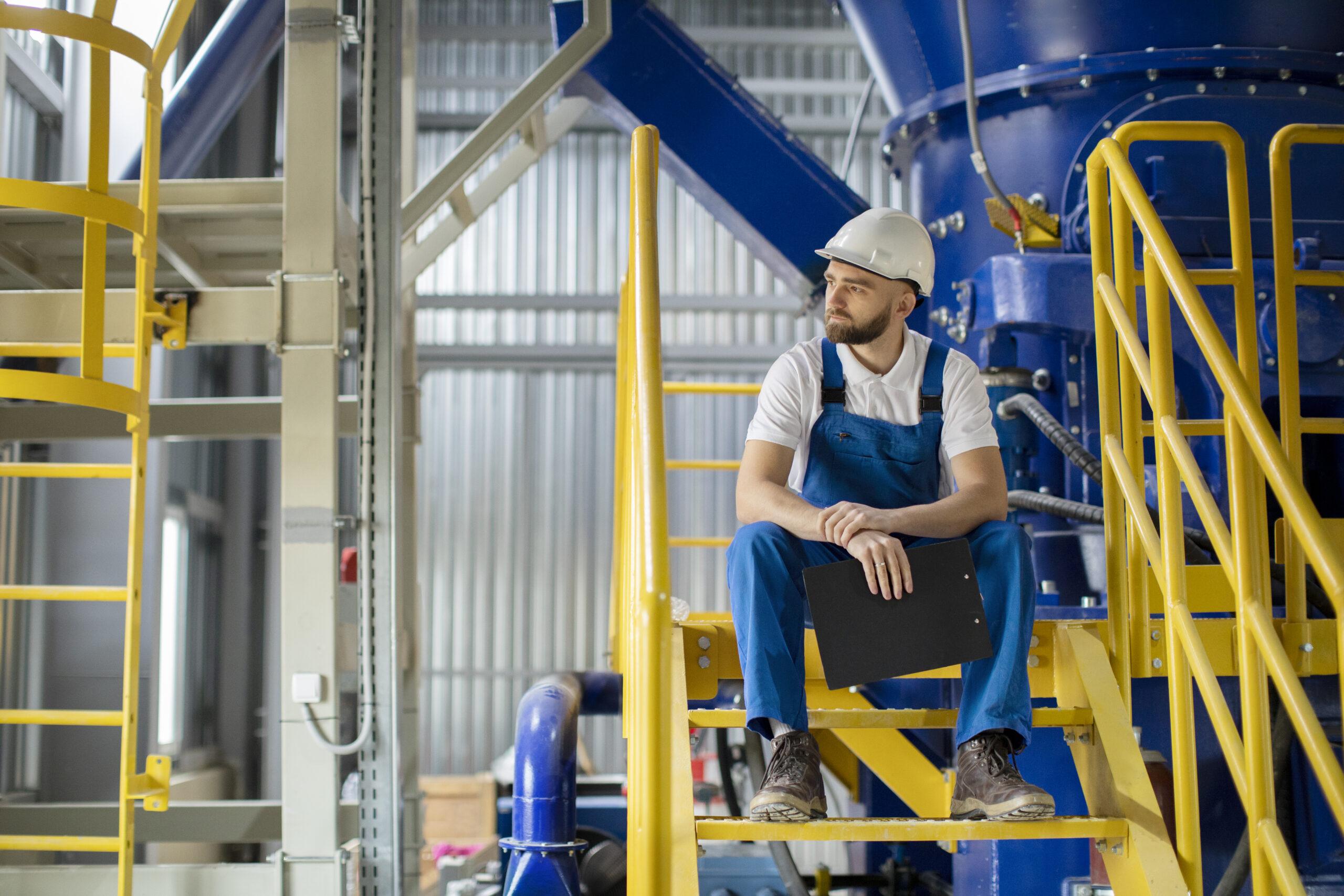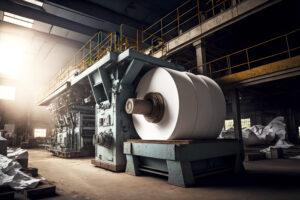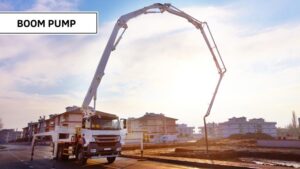
Now, when it actually gets down to running a successful business, your equipment and operations must be maintained at peak performance. Industrial maintenance may be a not-so-sexy subject, but it most definitely is a critically important subject for any operation concerned with increasing efficiency and mitigating lost production. We will go over in this article how regular maintenance can be the key to driving your business forward.
What Is Industrial Maintenance?
Industrial maintenance means the execution of regular wear and tear, repair, and optimization of industrial facilities inside a working area. It is performed so that due diligence in the efficiency and effectiveness of any system is guaranteed at all times, and the potential unexpected breakdown/downtime is kept to a minimum.
Industrial maintenance services in industries are very important. Proactive maintenance of equipment in any business environment could prevent costly downtimes, extend the life of machinery, and make sure that the working environment is constantly safe. Because of this reason, regular consistent care is taken not just to keep the operation running smoothly; it is essential for maintaining business growth.
Now, companies will be able to work on improving productivity using industrial preventive maintenance software to meet customer demand and attain complete success because of fewer breakdowns with reliable equipment.
Types of Industrial Maintenance
Industrial maintenance is extremely important for many different industries, which guarantee that all equipment and operations are functioning correctly. Here are the types of equipment within the industries where maintenance is necessary and some common issues businesses may face if there is no maintenance performed.
Types of Maintenance in the Industrial Field
First, let’s analyse the main types of industrial maintenance and repair services:
Reactive Maintenance
Reactive maintenance is frequently known as “run-to-failure” maintenance; equipment is run to the point of failure before the equipment is repaired or replaced. At first, this may seem to be a low-cost alternative because regular inspection and maintenance are not necessary. However, a facility that relies solely on a reactive maintenance strategy will probably experience unexpected downtime and repairs that are more costly because problems are not identified until criticality occurs.
Preventative Maintenance
The term “preventive maintenance” is defined as continuous monitoring, servicing, and fixing to prevent the failure of factors before the actual failure occurs. Therefore, it can be ensured that unexpected breakdowns of machines can be avoided by the implication of planned maintenance operations, which enhances the life and performance of machines. It ensures the good status of machinery and helps to avoid the adverse economic effect of business interruptions.
Reliability-Centered Maintenance
RCM is defined as a maintenance strategy that focuses on recognizing the most crucial pieces of equipment in an organization’s operation and assigning priorities to the maintenance of those vital pieces of equipment with regard to safety, production, and cost. RCM entails conducting a failure mode effects analysis and devising maintenance policies following that analysis but modified toward preventing particular modes of failure. RCM channels resources toward the most critical assets and allows businesses to maximize the maintenance of non-critical assets with the guarantee of increased reliability and performance.
Condition-Based Maintenance
It involves the monitoring of actual conditions through sensors on industrial process equipment and subsequent data analysis to decide when maintenance should be carried out. This is as opposed to schedule-fixed, meaning concerning any business, a CBM approach maximizes the use of the equipment, reduces unnecessary maintenance, and averts unexpected failures well in advance by nipping the causes in the bud.
Key Industries Where Industrial Maintenance Is Crucial
Industrial maintenance is critical in almost all industries; it plays a role in ensuring that all activities are done in the most cost-efficient and safe manner possible. Therefore, every industry must require its equipment or machinery to be properly maintained and serviced once to deter expensive downtime and injuries. To outline some major general industries in which industrial maintenance is crucial to providing sustainable business value:
- Manufacturing: Equipment: Conveyor belts, motors, production lines. Importance: Regular maintenance ensures continuous production and reduces the risk of machinery breakdowns.
- Energy Sector: Equipment: Turbines, generators, pipelines. Importance: Proper upkeep prevents failures that could lead to significant financial losses and energy supply disruptions.
- Transportation: Equipment: Vehicles, railways, highways. Importance: Maintenance is vital to ensure safety, reliability, and smooth operations across transportation networks.
Common Issues Faced Without Proper Maintenance
Regular industrial maintenance is absolutely essential to avoid several critical irregularities in business performance, which certainly work to lower profitability. Financial losses due to machine breakdown or operational losses from failing to meet market demand can shake any business organization to the core:
- Equipment Failure: Neglected maintenance can lead to sudden equipment breakdowns, halting production and leading to costly repairs.
- Unexpected Downtime: When machinery is not regularly maintained, unexpected downtime becomes a frequent issue, disrupting operations and affecting productivity.
- Safety Hazards: Failing to maintain equipment can create unsafe working conditions, putting employees at risk and potentially leading to accidents or legal issues.
Key Benefits of Industrial Maintenance for Businesses
Regular industrial maintenance benefits on many grounds, all of which relate directly to the business’s success and efficiency. Herein, it keeps operations smooth, affects the life cycle of machinery, and maintains safety in workplaces.
Prevents Unexpected Breakdowns
One of the major advantages of scheduled industrial maintenance is that it helps avoid unplanned failures. Scheduled inspections and service practices allow businesses to detect any warning signs and correct them before they bring in more severe problems. This preventive approach hence allows further uninterrupted production activity, avoids downtime, and maintains the business on its course schedule, thereby protecting it from costly disruptions.
Extends the Life of Machinery
Consistent maintenance keeps machinery in work conditions and also extends the life of the machinery. The wear and tear common in machinery due to regular lubrication, calibration, and part replacements are minimized hence averting deterioration that commonly causes failure in many pieces of equipment. Through investment in maintenance, a company minimizes its need for expensive replacement, hence fully implementing the use of equipment over time.
Ensures Workplace Safety
Maintenance is also imperative for workplace safety. Well-maintained tools and equipment tend to have few malfunctions, hence minimizing the likelihood of accidents and injuries at work. Business firms similarly may be able to observe some safety legislation by virtue of routine checks and repairs; this could avoid possible legal implications and fines. By prioritizing maintenance, companies provide a safer working environment for their people, which in turn contributes to overall productivity and morale.
So, what do we offer?
Industrial Maintenance Training
Industrial maintenance training provides the employees with the required potential to efficiently carry out the repair and maintenance of machinery and equipment. The areas that are usually covered include mechanical systems, electrical systems, safety protocols, and troubleshooting techniques. With well-trained maintenance staff, businesses can reduce downtime, prevent equipment failure, and henceforth boost overall productivity.
Industrial Maintenance Courses
Industrial maintenance courses are organized learning processes that equip individuals with the technical skills that industrial maintenance technology requires. The courses can range from basic, which would prepare an entry-level technician for a job, to more advanced for specific areas of maintenance, while topics covered can also range from basic preventive maintenance and reliability-centered maintenance to modern tools such as predictive analytics. Completion of the course allows the working personnel to keep pace with industrial standard practices regarding the challenges of industrial maintenance.
Industrial Maintenance Solutions
Industrial maintenance solutions include broad strategies, tools, and services adopted in the management and optimization of maintenance regarding industrial equipment. The solution may include software for scheduling and tracking maintenance activities, condition monitoring technologies, and outsourcing of maintenance services to specialized service providers. These effective maintenance solutions will help organizations simplify their processes related to maintenance, reduce costs, and make certain that their equipment is operating at full capacity.
Best Practices for Implementing Industrial Maintenance
At AMED-US, we think that an effective program of industrial maintenance requires careful planning and continuous effort in order to keep all the needs of the business in mind. Some industrial maintenance best practices are given to help businesses obtain maximum benefits due to their maintenance strategies.
Maintenance Strategy Based on the Requirements of the Business
The reality is that the maintenance strategy necessarily needs to reflect specific business operational requirements. It is of utmost importance that there is an analysis of what type of industrial maintenance tools are in use, how frequently they are in operation, and what types of risks come from the downtimes. It is in this regard that a customized maintenance policy will help a business ensure the maintenance efforts are for the purpose of serving these particular conditions and that no disruptions are caused to the maximum possible efficiency of the equipment in place.
Training the Maintenance Team
Technology advances, which means that industrial maintenance and troubleshooting tools and techniques also change. Continuous training must be given to the maintenance personnel in order to keep them abreast of the latest developments and best practices. With frequent training sessions, the serviced staff will easily come up to speed with all the new technologies and be able to solve problems and apply efficient maintenance methods. This would help these businesses remain competitive and live up to the high standards of operational excellence.
Apply Modern Tools and Technologies
The traditional ways of industrial maintenance have been revamped with new modern tools and technologies recently. Equipped with artificial intelligence and predictive analytics, AI-driven modern tools can consume huge data related to machinery after pattern identification and predict potential future failures even before they happen. Avail these advanced technologies so businesses can optimize their maintenance schedule in stride, minimize downtime, and extend equipment life to a greater extent. Including modern tools in a maintenance, strategy ensures that businesses are not responsive but proactive in maintaining their assets.
Industrial maintenance is one of the main ingredients in a smoothly running business. By keeping it regularly, you avoid unpredicted breakdowns. This helps in extending the lifespan of your equipment as well as assists in ensuring safety for everyone in the workplace. Focusing on maintenance will set up your business for an extended future. With the right strategy and proper tools in place, industrial maintenance can help your business run efficiently and strong over the years. Contact industrial maintenance companies to have the appropriate consultation!










